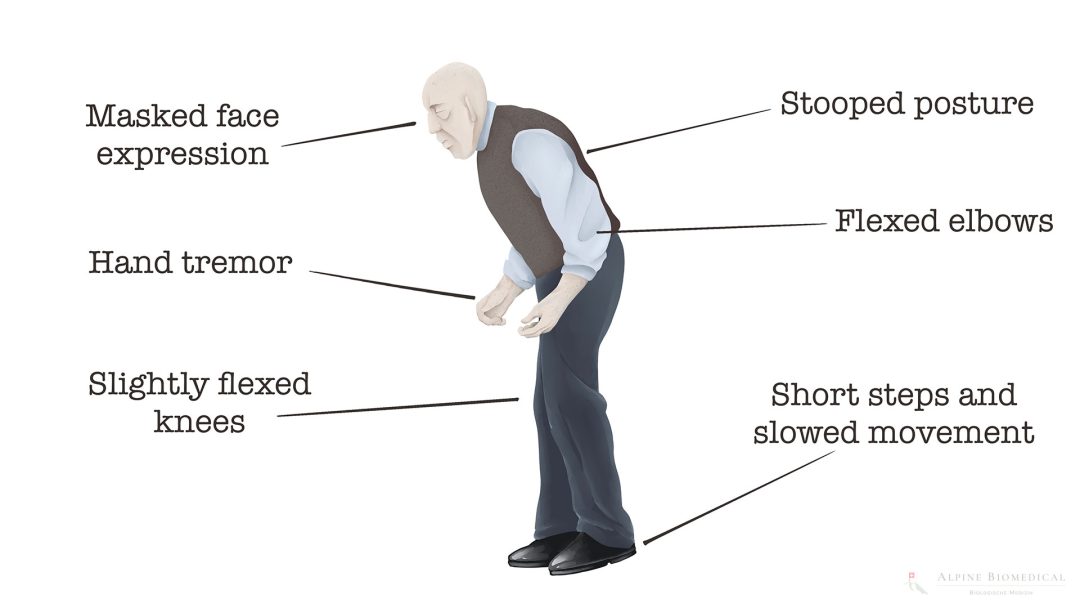Parkinson's Disease

Parkinson’s is a neurological disease that mainly affects older people. Typical symptoms include muscle stiffness, tremors, slowed movements, unsteady gait, but also a deterioration in the sense of smell or depressive moods. Triggers include enzyme defects that lead to the accumulation of metabolic products and increase oxidative stress on the cells in the brain. In the long term, this leads to the destruction of the dopamine-producing neurons and thus to a dopamine deficiency, which triggers the characteristic symptoms.
Causes and Triggers of Parkinson's Disease
The exact causes and triggers of Parkinson’s are not fully understood. However, the following triggers appear to play a role:
- Environmental pollution / chronic toxin exposure e.g. amalgam
- Leaky gut and disruption of the intestinal flora
- Damage to the blood-brain barrier
- Circulatory disorders of the brain
- Chronic inflammation, e.g. inflammation of the jaw
- Various neurologically active medications
- Genetic factors
Parkinson's Symptoms
Parkinson’s shows typical symptoms due to the lack of dopamine in the central nervous system:
- Small steps and slow movement
- Stiffening of the muscles with bent posture and angled position of the arms
- Trembling of the hands
- Poor balance
- Emotionless, rigid expression
- Depression
- Sleep disorder
Therapy for Parkinson's Disease
Conventional therapy for Parkinson’s focuses on alleviating the symptoms. This includes medication that increases dopamine levels (L-dopa) and physiotherapy to improve mobility. In addition, drugs are used that restrict the metabolism of L-dopa outside the brain and thus reduce possible side effects (decarboxylase inhibitors).
In advanced stages, the use of a pacemaker is recommended, which electrically stimulates the affected area of the brain and thus alleviates symptoms.
In the treatment of Parkinson’s disease, holistic medicine focuses on eliminating toxins through detoxification measures, optimizing intestinal function (intestinal cleansing) and improving the metabolic regulation of the nervous system. Damage to the blood-brain barrier should be identified and stabilized accordingly. Chronic inflammation in the jaw can be detected by the dentist with the help of a CBCT X-ray or a CaviTAU bone density measurement.
Dr. med. Karsten Ostermann M.A.
A full diagnosis to determine the possible individual causes is crucial in the treatment of Parkinson's disease.

Further information
The information listed contains relevant topics and serves to improve understanding.